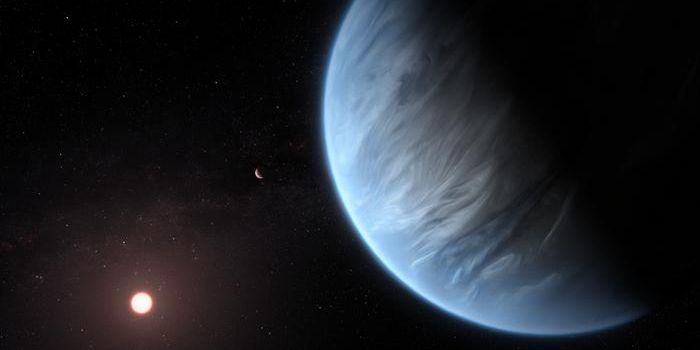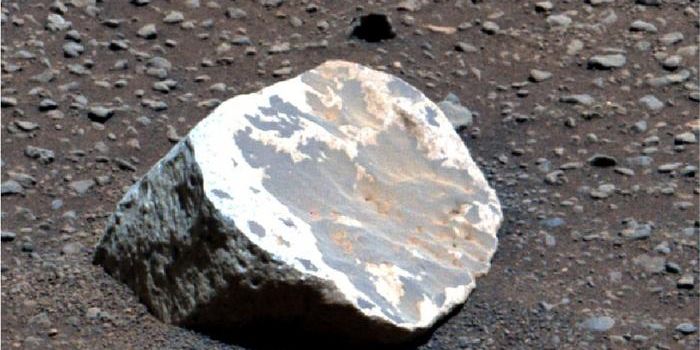Meteorite Parked in UK Driveway May Hold Clues to Planet Formation, Early Life
Japan Aerospace Exploration Agency's Hayabusa2 and NASA's OSIRIS-REx have both spent years trying to intercept asteroids and collect samples that can be returned to Earth. Now the same kind of rock they were gathering has landed in a driveway in Gloucestershire, UK. These types of meteorites are very rare, but they are special because they contain carbonaceous chondrite.
Carbonaceous chondrite meteorites are thought to come from an asteroid that was born around the same time as the planets themselves, when a swirl of dust and ice was coalescing into the early Solar System. They are also made of soft minerals and organic material like amino acids. With these ingredients dating back to the origins of the solar system, these meteorites could tell us more about how water and other building blocks for life were formed, and what planets are made of.
"This is really exciting. There are about 65,000 known meteorites in the entire world, and of those only 51 of them are carbonaceous chondrites that have been seen to fall like this one," said Professor Sara Russell, a researcher at The Natural History Museum in London who studies this type of meteorite.
"It is almost mind-blowingly amazing, because we are working on the asteroid sample return space missions Hayabusa2 and OSIRIS-REx, and this material looks exactly like the material they are collecting. I am just speechless with excitement."
While Hayabusa2 carried about 4.5 grams of this type of rock back to Earth in December 2020, and OSIRIS-REx is expected to bring back around 60 grams in 2023, the meteorite that landed in February is a 300-gram sample. Luckily, the person that found it was adept at scooping it up.
"For somebody who didn't really have an idea what it actually was, the finder did a fantastic job in collecting it. He bagged most of it up really quickly on Monday morning, perhaps less than 12 hours after the actual event," noted Dr. Ashley King, a researcher at the Museum.
"It looks a bit like coal. It is really black, but it is much softer and is really quite fragile. It is exciting for us because more this type of meteorite is incredibly rare but holds important clues about our origins," added King.
While residents of the town of Winchcombe heard the impact on a Sunday night, a check outside didn't reveal anything amiss. In the morning, they saw a sooty splatter in their driveway. So, they picked up the pieces and contacted the UK Meteor Observation Network.
"Meteorites like this are relics from the early Solar System, which means they can tell us what the planets are made of," said Russell. 'But we also we think that meteorites like this may have brought water to the Earth, providing the planet with its oceans."
These meteorites are rarely found in part because they are so fragile. This meteorite is thought to have only been traveling around 13 kilometers per second, a relatively slow speed for these flying rocks.
'These meteorites can come in at up to 70 kilometers per second, so if this really soft rock had been traveling that fast, it would have been completely destroyed in the atmosphere," explained King. "The fact that it was going quite slowly, and then that it was collected so quickly after landing, avoiding any rainfall that could change its pristine composition, means that we've just really lucked out with everything."
Now researchers will be able to analyze it, and the data can be combined with research from the Hayabusa2 and OSIRIS-REx missions to gain a better understanding of these meteorites and possibly, our origins.
Source: Natural History Museum










